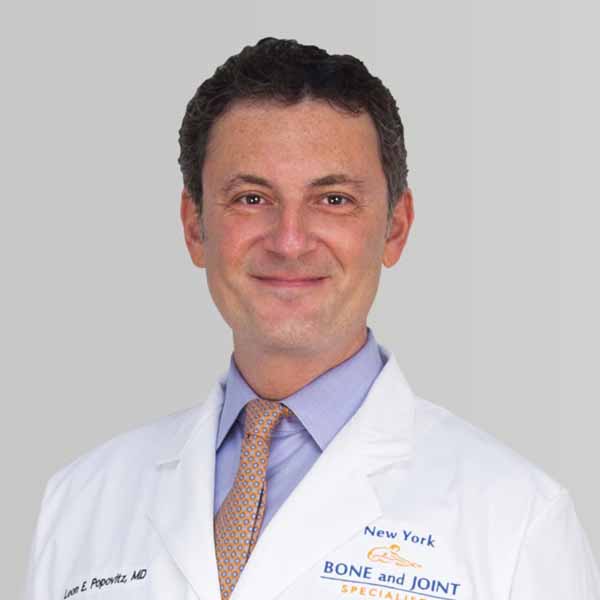Tips from NYC’s Top Orthopedic Surgeon at New York Bone & Joint Specialists
Want to live longer, feel better, and stay active for decades to come? It all starts with preserving the joints and bones you were born with.
At New York Bone & Joint Specialists, our philosophy is simple: preservation is the key to longevity. While advancements in orthopedic surgery and sports medicine have come a long way, the best strategy is still prevention, and it starts with how you move, fuel, and care for your body today.
Here’s our expert-backed plan to help you keep your joints strong, mobile, and pain-free for the next 100 years (yes, really).
- Get Up and Move Often!
One of the most powerful things you can do for your joints is also the simplest: just move.
Too many of us are stuck sitting for hours a day- at our desks, in our cars, or on the couch. This sedentary lifestyle is one of the biggest contributors to joint stiffness and degeneration over time.
Movement helps circulate nourishing fluid around your joints, especially cartilage. It keeps muscles engaged, improves flexibility, and prevents long-term stiffness. Even after surgery, early movement is critical for healing. That’s why passive movement is a key part of rehab protocols.
🟠 Quick Tip: Set a timer to stand or walk around for 5 minutes every 30–60 minutes. Your joints will thank you.
- Stick with Low-Impact Exercise
Regular exercise is essential, but it doesn’t have to mean intense workouts or pounding the pavement.
For most people, low-impact exercise is the safest and most sustainable way to support long-term joint health. That means activities like walking, swimming, cycling, and light strength training.
- Focus on core strength — A strong core supports your posture and protects the spine.
- Do resistance training — Light weights with high reps are great for preserving muscle mass without joint strain.
- Don’t underestimate walking — It’s one of the best full-body exercises around. If you can walk, walk!
If you have a pre-existing condition (arthritis, prior joint injury, etc.), high-impact activity may accelerate wear and tear. But if you’re healthy and symptom-free, running and other impact sports are perfectly fine. Just monitor how your body feels!
- Target Your Joint Concerns with Specific Exercises
If you already have areas of concern (like shoulder pain or knee stiffness) targeted exercises can help strengthen and protect those joints.
✅ Knees: Focus on quad strengthening, hamstring stretches, and IT band mobility
✅ Shoulders: Incorporate rotator cuff exercises and capsule stretches
✅ Hips & Back: Strengthen your glutes and maintain hip flexibility
Every joint benefits from a unique approach. If you’re not sure where to start, ask your orthopedic provider or physical therapist for a personalized plan.
- Fight Inflammation with Food
Chronic inflammation is one of the biggest drivers of joint pain — and your diet plays a major role in either reducing or aggravating it.
🛑 Foods to avoid:
- Refined sugar and carbs
- Seed oils (like canola or soybean oil)
- Processed meats
- Packaged and ultra-processed snacks
✅ Anti-inflammatory foods to enjoy:
- Fatty fish (like salmon and sardines)
- Avocados
- Berries (antioxidant-rich)
- Chia seeds and walnuts
- Leafy greens
- Turmeric (either in food or supplement form)
What you eat matters. A diet rich in whole, anti-inflammatory foods can reduce pain, boost mobility, and support your joints from the inside out.
- Consider Supplementing Smartly
Supplements won’t replace a healthy lifestyle, but they can help support joint health, especially when paired with movement and good nutrition.
Here are some of the top orthopedic-approved supplements for bones and joints:
💊 Vitamin K2 + D3
These two vitamins work synergistically to support bone strength, calcium absorption, and overall skeletal health. If you’re already taking D3, consider pairing it with K2 for enhanced benefits.
💊 Omega-3 Fish Oil
Omega-3 fatty acids have been shown to reduce inflammation, support cardiovascular health, and improve joint flexibility. They’re particularly beneficial for people with arthritis or chronic joint stiffness.
💊 Turmeric (Curcumin)
This natural anti-inflammatory has been used for centuries. Turmeric supplements can help reduce pain, stiffness, and swelling, especially for those with osteoarthritis. Just be cautious if you have a bleeding disorder or are on blood thinners.
💊 Glucosamine & Chondroitin
This classic combo has stood the test of time. Studies show it may help relieve mild to moderate joint pain, especially in the knees. Be consistent — it typically takes about 6+ weeks to feel results. Those with diabetes should use caution, as glucosamine may affect blood sugar.
💊 Collagen
Collagen supports the matrix of soft tissues in the body, from tendons and ligaments to skin and cartilage. Collagen supplementation may aid in recovery, joint stability, and muscle function, particularly for active individuals or older adults.
- Create a Plan — and Stick With It
The key to long-term joint health isn’t magic. It’s consistency.
Set a simple daily plan:
- What are you eating?
- How will you move today?
- What supplements or medications are part of your routine?
- What will you avoid?
Consistency and intentionality are what separate aging with pain from aging with freedom.
Bottom Line: Proactive Joint Care = Longer, Healthier Life
It’s not just about adding years to your life. It’s about adding quality to those years.
At New York Bone & Joint Specialists, we believe you deserve to live an active, pain-free life at every age. Whether you’re recovering from an injury, trying to avoid surgery, or just want to feel your best, our team of orthopedic surgeons, sports medicine doctors, and physical therapists are here to help you move better, feel better, and stay strong for the next 100 years.
🟦 Got questions or concerns about your joint health?
Request a consultation today at one of our convenient NYC locations or stop by our urgent walk-in centers in Midtown and the Upper East Side for same-day appointments.





